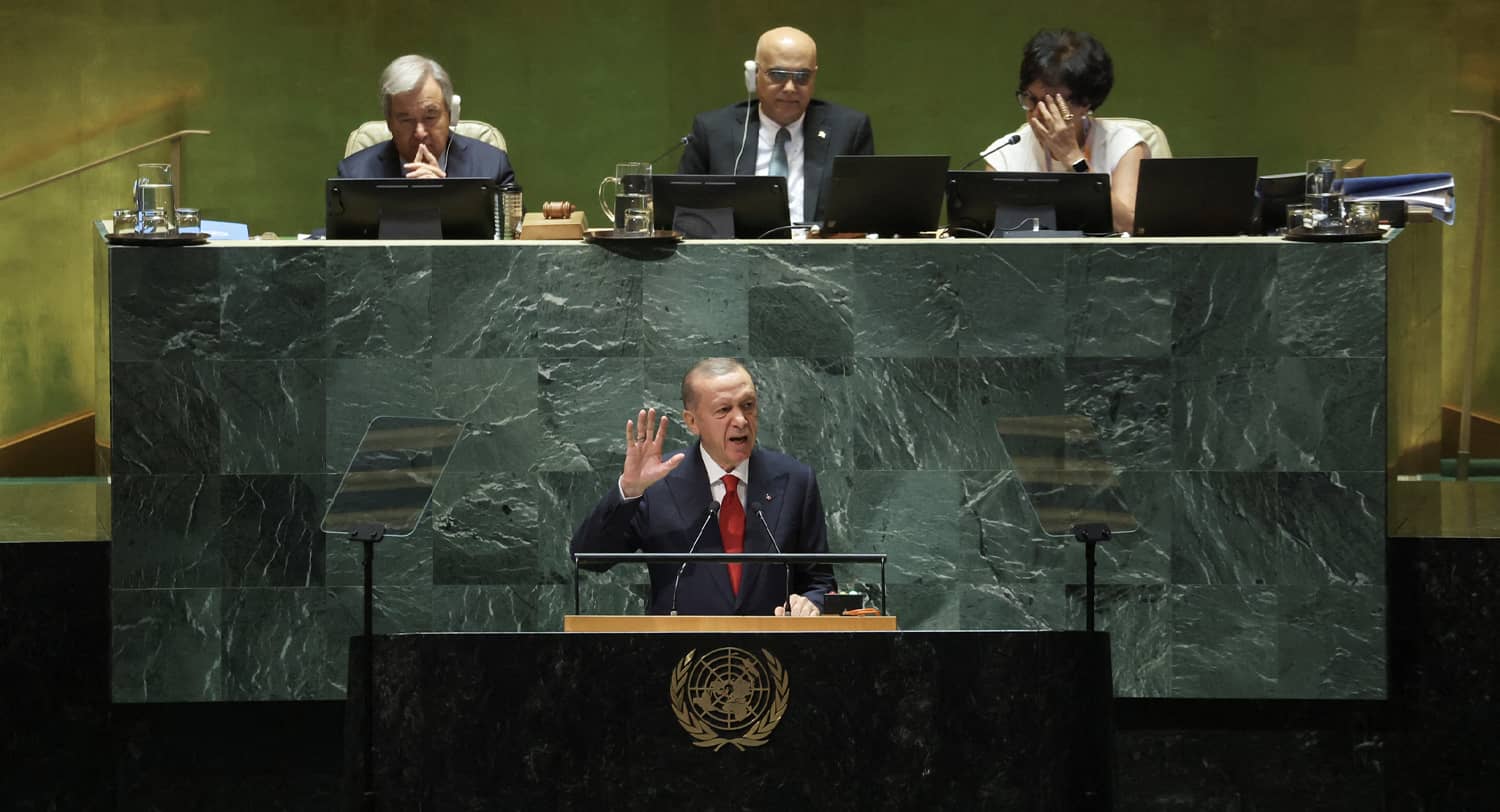Turkey’s President Recep Tayyip Erdoğan is in New York this week for the UN General Assembly and side meetings with world leaders. Before going, he voiced his frustration with the Biden administration’s decision to directly link the sale to Turkey of upgraded F-16 fighters (which require congressional approval) to Ankara’s ability to ratify Sweden’s accession to NATO. Erdoğan’s response: “If you have a Congress, I have a Parliament.”
The bargaining with Erdoğan over expansion of NATO is not over. At NATO’s Vilnius June 2023 summit, Secretary General Jens Stoltenberg announced that Erdoğan had finally agreed to approve Sweden’s membership. According to Turkey, Sweden provides safe haven to militants of the Kurdistan Workers Party (PKK), which Turkey, the European Union and the United States consider a terrorist organization. The Swedish government took steps to satisfy Turkish demands, even deciding to extradite a number of persons despite knowing full well that they would likely not get fair legal treatment in Turkey.
The Biden administration has taken steps to placate Erdoğan for the greater good of NATO expansion. While noting that Ankara is “a difficult ally”, the administration also routinely highlights that Turkey is vital to Western interests. For instance, Washington has applauded Ankara’s efforts to sell combat drones and armored personnel carriers to the Ukrainian military. Early in the Ukraine war, Erdoğan shut down the Turkish straits to Russian warships and facilitated a grain deal with Vladimir Putin, that saw Ukrainian grain safely distributed globally, and averted regional famines.
Currently on the table for Turkey is a doubling of its World Bank loan exposure to a total of $35 billion; the US is the largest shareholder in the World Bank. This vote of confidence in Turkey’s economy would help stabilize its fragile current account deficit and reassure holders of Turkish debt.
But the question remains: Is Erdoğan’s Turkey a reliable ally of the West? Beyond the ongoing bargaining over Sweden’s NATO accession, Erdoğan’s foreign policy raises doubts in several areas.
- On Ukraine, Erdoğan allows Turkish firms to sell dual-use technologies to the Russian military. Turkey refuses to participate in the sanctions regime against Moscow, which over 40 allied countries implement. Furthermore, Erdoğan is no longer perceived to be a persuasive mediator with Putin, given that Moscow refuses to re-enter the grain deal, even after Erdoğan’s recent meeting with Putin in Sochi.
- On Israel, a shipment from Turkey of 16 tons of rocket-making material, bound for Gaza, was very recently seized by Israeli authorities at its port in Ashdod. Ankara refuses to designate Hamas as a terrorist organization and provides the Hamas leadership sanctuary and offices on Turkish soil.
- The US Treasury continues to sanction numerous Turkish persons and entities over their continued efforts to habitually evade international sanctions.
A smart way to approach Mr. Erdoğan in New York is along the lines suggested in June by Ambassador Daniel Fried in the JST: be clear and consistent and respond to his conditions with ones of our own. If Turkey is to receive F-16 fighter jets and international finance to stabilize its economy, then both must come with conditions. For fighter jets, this must mean that Sweden’s membership is ratified by the Turkish parliament (which Erdoğan’s party controls) along with pledges that these new jets will not be used to threaten other allies such as Greece and Cyprus. Ankara should cease its support of Hamas and other terrorist entities and work with the West to impose sanctions on Russia.
On the issue of World Bank financing, this is simply the wrong path. If Turkey desires to receive budget support, like other distressed states, this is the realm of the IMF. IMF loans come with strong conditionality that, among other things, provides budget transparency. Erdoğan does not want IMF programs and prefers World Bank project lending, possibly because disclosing government budget spending on his part would reveal corrupt practices.
The approach to Erdoğan must continue to meet his bargaining, transactional approach with conditions and requirements that further American interests.

